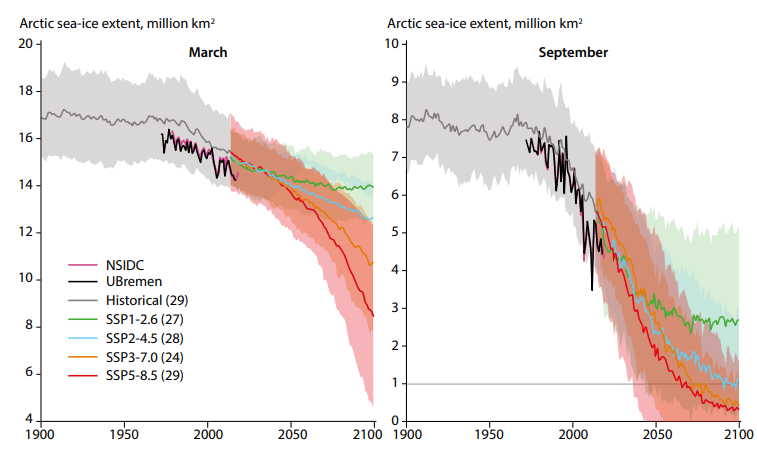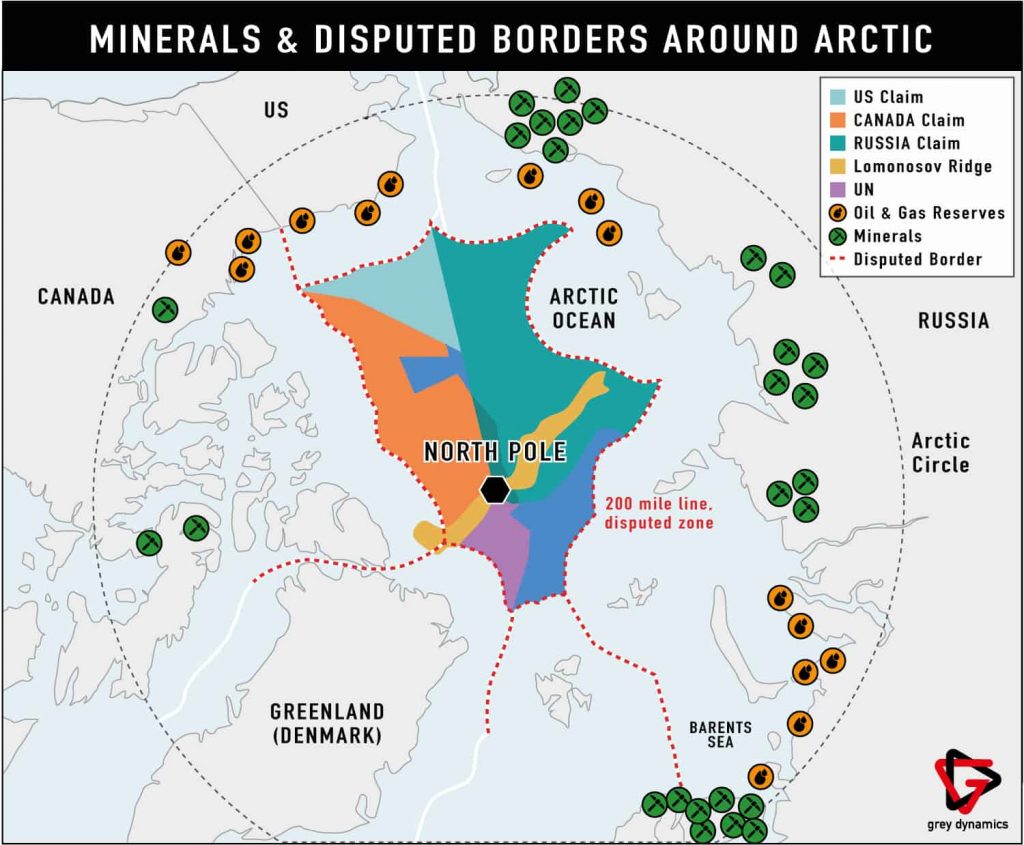More than 40 ethnic groups scattered in seven countries of the polar circle compose the Arctic Indigenous People: Russia, Finland, Sweden, Norway, the Kingdom of Denmark, Canada and the United States. Despite the cultural and linguistic differences, they face transversal security threats that are profoundly endangering their livelihood and lifestyle.
Key judgement 1: polluting human activities and global warming will almost certainly continue to degrade the Arctic environment over the next 12 months.
- Reduced snow cover and increased rainfall damage wildlife and livestock, threatening the livelihood of the indigenous pastoralist people, like the Saami. [source]
- Summer sea ice is melting away, destroying wildlife habitats and disrupting dog sledge routes and hunting paths.[source] [source]
- Permafrost is thawing, causing soil instability and collapse, damaging infrastructures and releasing carbon dioxide into the atmosphere. [source]
- More frequent storms erode the coastlines and threaten the native villages of fishermen. [source]
- Ocean acidification and heating undermine the marine ecosystems and harm fishermen’s indigenous communities. [source]
- Noise pollution and sea-bed artificial stirrings caused by rising maritime traffic alter marine ecosystems.[source]
- As testified by the case of Siberia and Alaska, wildfire occurrence is dramatically increasing. [source] [source]
- Increased extreme events and climate unpredictability strain the native communities that deeply connect with the ancestral lands and rely on primary sector activities for their livelihood. [source] [source]

Key judgement 2: Resources deposits and the progressive opening of commercial routes will highly likely bolster the shift towards industrialisation over the next 12 months, lowering indigenous bargaining power and rendering their lifestyle more difficult.
- Apart from Greenland, the native people correspond to 10-15 % of the total population, and their economic activities account for a small part of the GDP. [source][source]
- Reliable estimations affirm the Arctic houses constitute 13 % of the global undiscovered conventional oil and 30 % of the global undiscovered conventional natural gas. [source] [source]
- The region is rich in rare-earth materials and gems, like palladium, diamonds, nickel and tungsten. Despite the deposits’ relative inaccessibility, the Arctic countries will likely increase these strategic elements’ exploitation in the next 12 months. [source] [source]
- The extraction and refinement of these materials significantly impact the environment, aggravating nature’s disruption. [source]
- The progressive melting of the polar ice facilitates the region’s navigation, potentially opening transpolar commercial routes, like the Northeast and Northwest passages, in the following years. [source]
- The economic incentives make achieving a balance between industrialisation and traditional lifestyles improbable. [source]

Key judgement 3: The revival of great power competition will likely negatively affect the Arctic space over the next 12 months, further marginalising the Native People’s claims
- There are considerable gaps in Arctic governance, especially in the security domain.[source]
- The Arctic Council is the area’s primary intergovernmental organisation but cannot deal with military-security issues due to its statute limitations. [source]
- There is no security architecture in the Arctic. [source]
- Six indigenous councils and associations are permanent members of the Arctic Council but do not have voting rights, hindering their influence over the organisation’s decisions. [source]
- Particularly after the 2014 Crimea’s annexation by Russia, the Arctic countries have increased military spending and militarised the north pole. [source] [source]
- Following the invasion of Ukraine by Russia in march 2022, the activities of the Arctic Council were suspended, closing one of the few communication channels in the area. [source]
- The Artic Council activities’ suspension has further marginalised native claims that can no anymore exercise their consulting function. [source]
Intelligence Cut-Off Date: December 7, 2022

